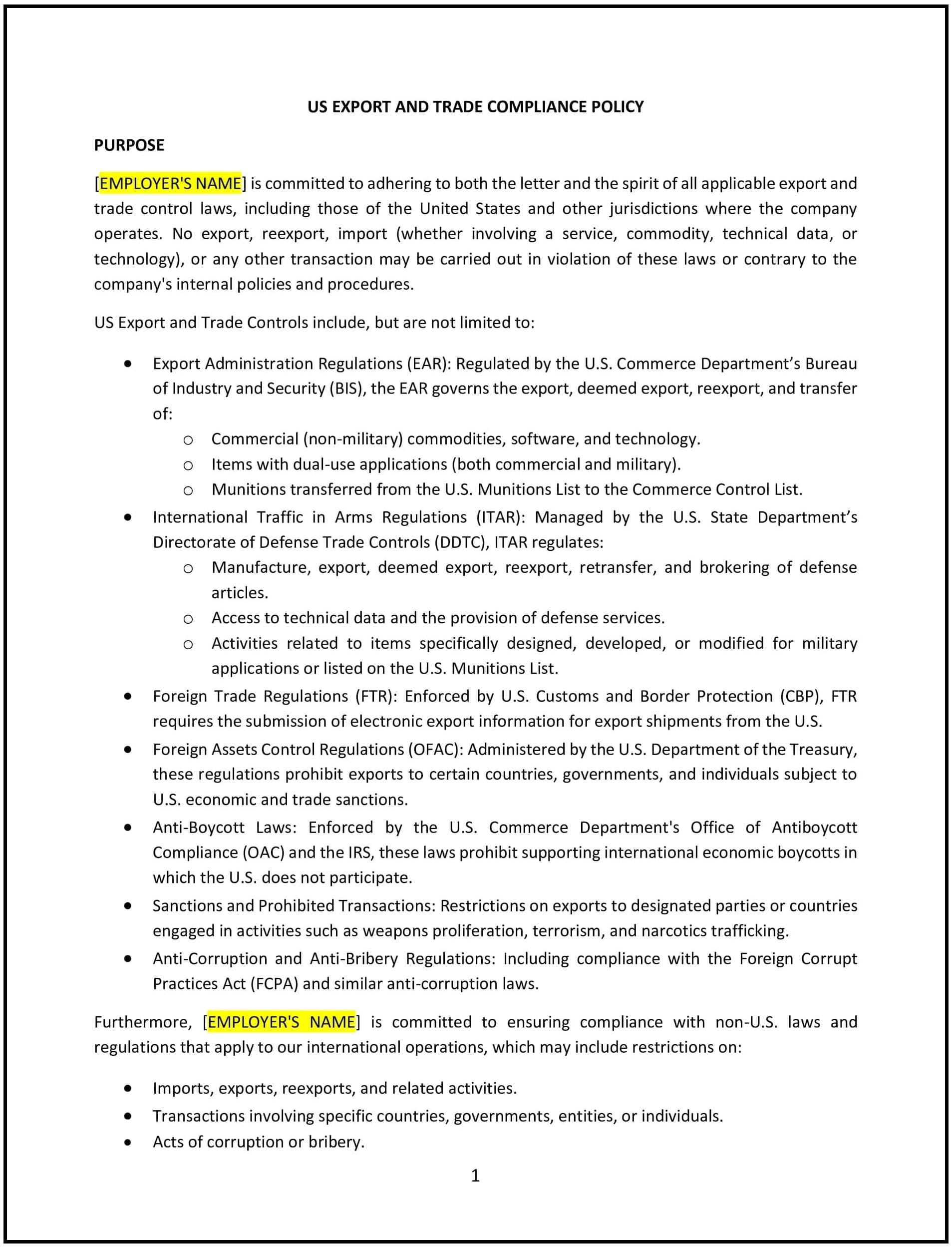US export and trade compliance policy (Wisconsin): Free template
Got contracts to review? While you're here for policies, let Cobrief make contract review effortless—start your free review now.

Customize this template for free
US export and trade compliance policy (Wisconsin)
In Wisconsin, a US export and trade compliance policy helps businesses navigate the complexities of federal and international trade laws. This policy ensures that employees understand their responsibilities regarding the export of goods, services, and technology while maintaining compliance with federal regulations such as the Export Administration Regulations (EAR) and International Traffic in Arms Regulations (ITAR).
The policy establishes guidelines for managing trade compliance risks, ensuring lawful operations, and maintaining ethical standards in all international business activities.
How to use this US export and trade compliance policy (Wisconsin)
- Define compliance requirements: Clearly outline the laws and regulations governing exports and trade compliance, including EAR, ITAR, and Office of Foreign Assets Control (OFAC) requirements.
- Establish responsibilities: Specify the roles and responsibilities of employees, managers, and compliance officers in ensuring adherence to trade compliance policies.
- Implement procedures: Provide detailed steps for managing export licensing, restricted parties screening, and documentation requirements.
- Monitor and report violations: Establish a process for identifying, reporting, and addressing potential compliance violations to minimize risks.
- Support compliance: Align the policy with federal regulations and industry best practices while incorporating Wisconsin-specific considerations for businesses involved in international trade.
Benefits of using a US export and trade compliance policy (Wisconsin)
- Reduces legal risks: Helps businesses avoid fines, penalties, or sanctions associated with trade compliance violations.
- Supports compliance: Promotes adherence to federal export regulations, reducing the risk of regulatory scrutiny.
- Protects business reputation: Demonstrates a commitment to lawful and ethical business practices in international trade.
- Enhances operational efficiency: Provides clear procedures for managing trade compliance, reducing delays and errors in export processes.
- Promotes accountability: Assigns clear responsibilities for compliance, ensuring employees understand their roles in maintaining lawful operations.
Tips for using a US export and trade compliance policy (Wisconsin)
- Provide training: Offer regular training to employees and managers on export control laws, trade sanctions, and compliance procedures.
- Use technology: Leverage compliance software to automate processes like restricted parties screening and export documentation.
- Conduct audits: Regularly review trade compliance procedures to identify and address gaps or risks.
- Maintain thorough records: Ensure proper documentation of export activities, licenses, and compliance checks to support regulatory audits.
- Stay updated: Monitor changes in federal trade regulations and update the policy as needed to maintain compliance.